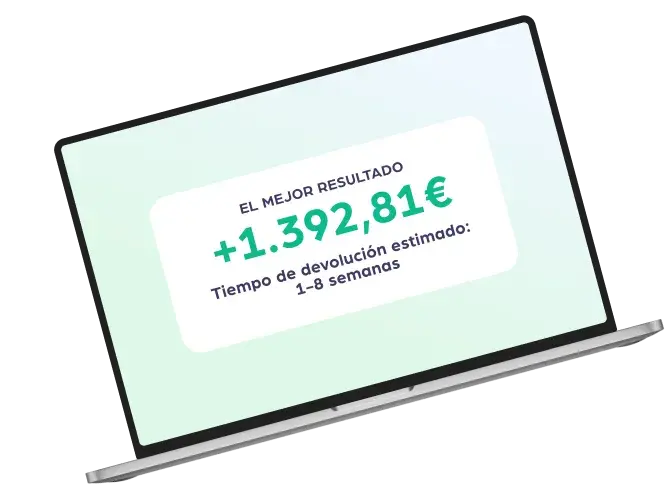Do you have properties abroad and do you rent them or have you sold them? If your answer is yes, you should know that if your tax residence is in Spain you will have to pay tax on the profits obtained. We explain how it works:
What to do with real estate abroad?
It may happen that, as a consequence of the death of a relative living abroad, you have inherited an apartment in France, for example, and you decide to sell it after some time. The sale, in general, could give rise to a capital gain that you will have to declare in your personal income tax self-assessment as a capital gain.
The valuation of the transfer of the property for tax purposes will be calculated taking into account the IRPF laws from article 33:
33.1. Existence of an alteration in the composition of the taxpayer’s wealth.
33.2. That as a consequence of this alteration there is a variation in the value of the taxpayer’s patrimony.
33.3. That there is no legal rule that expressly exempts such gain from taxation or makes it taxable as income.
Start saving now! 👉
The double taxation deduction
The problem is that in the country where the property is located, it may also be necessary to pay tax on the gain obtained in the sale.
To avoid the problem of double taxation, it will be necessary to analyze the application of the International Double Taxation Agreements with the country where the property is located and article 80 of the Personal Income Tax Law regarding the deduction for international double taxation, which establishes the following:
When the taxpayer's income includes income or capital gains obtained and taxed abroad, the lesser of the following amounts shall be deducted:
The effective amount of the amount paid abroad by reason of a tax of an identical or analogous nature to this tax or to the Non-Resident Income Tax on said income or capital gains.
The result of applying the average effective tax rate to the part of the taxable income taxed abroad. (…)
Let us take as an example the laws of the Spain-France agreement to exemplify the deduction for double taxation.
The first thing to determine is where the person's tax residence is located. Based on Spanish regulations It will be understood that a natural person resides in Spain when any of the following circumstances occur:
That he/she stays more than 183 days, during the calendar year, in Spanish territory. In order to determine this period of permanence, sporadic absences will be computed unless the taxpayer proves his tax residence in another country.
That the main nucleus or the base of his activities or economic interests is located in Spain.
That the spouse and the minor children who depend on the individual habitually reside in Spain.
In the case in which income is obtained from real estate according to article 6 of the Spanish-French Agreement, it can be taxed in Spain and in France, but the taxpayer will be able to apply in Spain the deduction for international double taxation that has already been mentioned before.
In the case of the alienation of the real estate, the same thing happens, the taxpayer will have to pay tax in Spain and in France and will be able to apply the deduction for international double taxation.
As a consequence of all the above, it is important to analyze each case and to consult with an expert tax advisor who knows the legislation in depth and who will carry out the IRPF self-assessment correctly in order to avoid errors or penalties.

How do you declare a situation of residing abroad, whether for a long or short stay?
For these circumstances, it is necessary to determine which is the habitual residence, in order to specify the condition of resident or non-resident, since one does not pay the same IRPF tax as a Spanish resident taxpayer and as a taxpayer of the Non-Resident Income Tax (IRNR).
The taxpayers who are displaced outside Spanish territory and the Spanish civil servants and public employees abroad will be able to file their income tax return and, if applicable, make the payment or request the refund electronically (with reference, electronic certificate or PIN Code) under the same conditions as the other taxpayers.
In the case of returns to be refunded with waiver of the refund or negative returns, they can be sent by registered mail, addressed to the Tax Agency Delegation or Administration in whose territorial demarcation the last habitual residence in Spain is located.
Non-resident citizens in Spanish territory who have a NIF can obtain an electronic certificate from the FNMT through all Spanish Consular Offices abroad, without the need to travel to our country.
With the electronic certificate the person will be able to relate with the Spanish tax administration through the web, without the need to travel. Per diems and travel expenses also have a special treatment if the person has resided abroad.
An individual is a resident in Spanish territory when he/she stays more than 183 days, during the calendar year, in Spanish territory when the main core of his/her activities or economic interests are in Spain.
Also if the spouse who is not legally separated and the minor children who depend on this individual habitually reside in Spain. In such cases, income obtained both in Spanish territory and in any other part of the world must be taxed in Spain.

If an employee moves from one country to another temporarily for work purposes, the number of days of work abroad must be taken into account. If the stay is less than the 183 days mentioned above, the worker will continue to be considered a taxpayer of the IRPF. If he/she exceeds this time limit, unless the basis of his/her economic interests is in Spanish territory, the income from work must be taxed under the IRNR.
There are two exceptions: Spanish diplomats and consular officers are taxed under IRPF as Spanish residents even though they have their habitual residence abroad.
If you receive a request from Hacienda... don’t panic!
More than half are resolved in favor of the taxpayer. It’s just a matter of responding correctly and presenting all the documentation properly. And at TaxDown, we help you with that!
That's a wrap! File now your taxes

Make the most of your move to Spain!
Cut taxes by up to 50% with TaxDown's hassle-free Beckham Law support.
If you need more help on the subject, write to us and we will try to help you:
Did you find this article useful?

0€ por año
Conoce tu resultado sin coste
Calcula tu resultado incluyendo todas las deducciones. No incluye la presentación.
- Incluyendo TODAS las deducciones
- En 15 minutos
- Fácil y claro
Elige el plan que mejor se adapta a tus necesidades

Hazlo por tu cuenta fácil y con seguridad
Desde 35€ por año

- Asesores vía email en 24h
- Revisión final de expertos
- Máximo ahorro garantizado

Hazlo con apoyo de asesores en tiempo real
Desde 45€ por año

Todo lo de PRO más:
- Chat directo con asesores
- Respuestas en minutos

Haz tu declaración con un experto en tu situación
Desde 55€ por año

Todo lo de LIVE más:
- Un experto exclusivo para ti
- Tu experto en WhatsApp
- Informe final personalizado

Nos encargamos de hacer TODO por ti
Desde 65€ por año


Todo lo de EXPERT más:
- Tu experto hace todo el proceso
- Todos los trámites y ayudas incluidos*
- Estudio de declaraciones pasadas
- Cubrimos rentas complejas
El precio dependerá de la complejidad de tu declaración

¿Qué dicen quienes ya apostaron por TaxDown?
María
"Pensaba que solo era que te hacían la declaración y ya. Para mi sorpresa, ¡me orientan fiscalmente a lo largo de todo el año! Una verdadera pasada"
Roberto
"Quise empezar a invertir en acciones y crypto y desconocía la relación fiscal que tendría y no dudé en aprovechar la suscripción para que me orientaran...muy útil!"
Alicia
"iba a comprarme una casa y no sabía si me repercutiría fiscalmente, y me han aclarado absolutamente todo. Top!"
Gloria
"el descuento en los planes para autónomos de trimestral es bastante bueno! ahora tengo todo centralizado y digital"
Ernesto
"me asesoraron en cómo y cuándo vender mi casa para ahorrar fiscalmente, no tenía ni idea!"
Ricardo
"prácticamente por el mismo precio que me cuesta un asesor, además de la renta tengo asesoría fiscal todo el año gratis...merece la pena"
Todos los medios hablan de nosotros
















































TaxDown es más que la declaración de la renta.
Si necesitas ayuda con requerimientos, presentar fuera de plazo, Ley Beckham o 7p, ayudas de maternidad...
Regístrate ahora









 No me interesa hacerla con expertos
No me interesa hacerla con expertos






Deja una respuesta